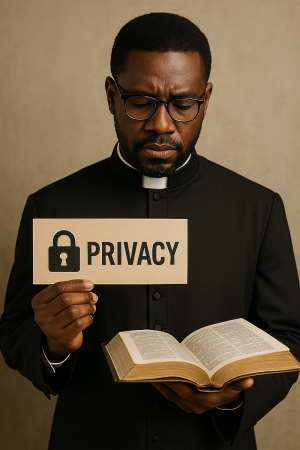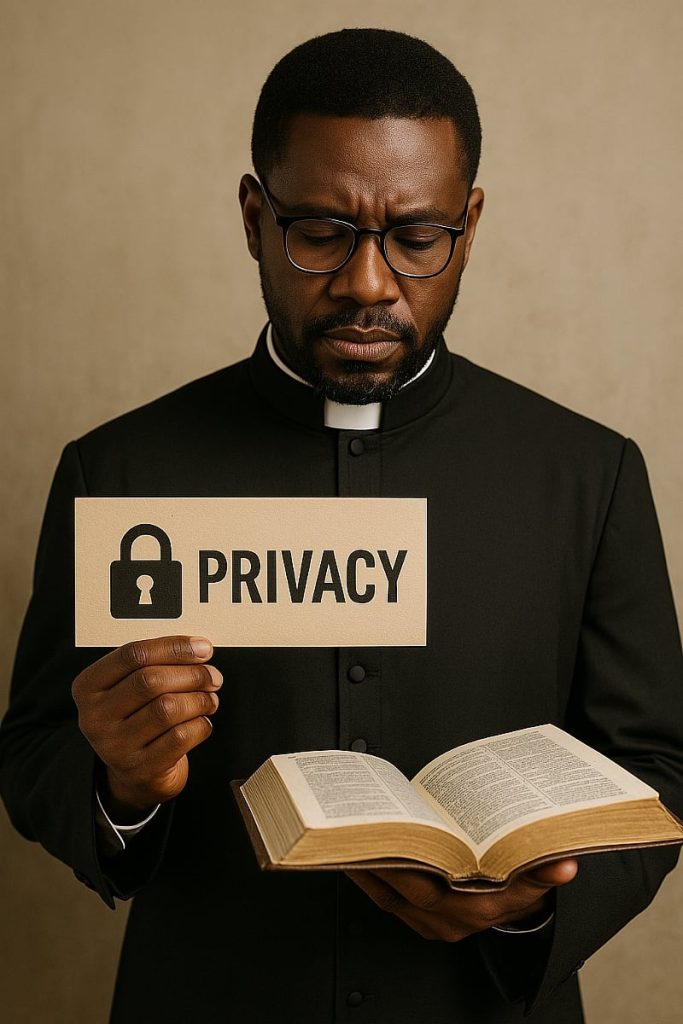
In our modern age of digital surveillance, endless data trails, and increasingly invasive technologies, privacy can feel like an outdated ideal—something to be surrendered for convenience or safety. But privacy is not a man-made concept nor merely a regulatory requirement. It is deeply biblical, grounded in divine intention and sacred wisdom. As both a Christian and a Data Protection Officer with understanding of Ghana’s Data Protection Act and frameworks like the GDPR and CCPA, I firmly believe that the principle of privacy is not only ethical and legal—it is spiritual.
From the Garden of Eden to the Proverbs of Solomon, the Bible speaks to the importance of personal boundaries, discretion, and the respectful handling of information. When God created man and woman, He gave them not just life and purpose, but also freedom, space, and intimacy—all core aspects of what we call privacy today.
In Genesis 3, after Adam and Eve disobey God by eating the forbidden fruit, their immediate response is to cover themselves. “Then the eyes of both of them were opened, and they realized they were naked; so they sewed fig leaves together and made coverings for themselves” (Genesis 3:7). This was not merely a reaction to physical exposure—it was the birth of privacy consciousness. The moment they became aware of right and wrong, of vulnerability and self-awareness, they sought to conceal what had previously been open. Privacy, in this case, emerges not as shameful, but as a natural, moral instinct—an act of self-respect and dignity.
God’s response also acknowledges this newly awakened sense of self. Rather than ridiculing or dismissing their covering, He engages them in dialogue. “Where are you?” He asks—not because He doesn’t know, but because He grants them space to respond, to explain, to consent to disclose. This divine restraint models what, in modern terms, we might call purpose limitation—only asking for the data needed, for the purpose at hand.
Further support for privacy is echoed in Proverbs 25:9–11:
“Argue your case with your neighbor himself, and do not reveal another’s secret, lest he who hears you bring shame upon you, and your ill repute have no end. A word fitly spoken is like apples of gold in settings of silver.” Here, Solomon warns against the careless sharing of someone else’s information. This is remarkably aligned with confidentiality and data minimization, both cornerstone principles of privacy legislation. Information shared in confidence must not be revealed without clear justification or consent. In today’s world, where people’s lives are increasingly vulnerable to leaks and misuse of personal data, the wisdom of Proverbs rings truer than ever.
Even in Exodus, God gives Moses specific commandments to be kept inside the Ark of the Covenant—a sacred container hidden behind a veil. This was not just divine theatre. It symbolized the separation of sacred knowledge from public view. Not all information is for everyone. Some knowledge, just like personal data, requires protection and reverence. The same principle now underlies modern data protection laws, which recognize that personal information is not to be public property. Instead, it should be collected for legitimate reasons, used transparently, and protected with care.
Fast-forward to the New Testament, and the teachings of Jesus Christ also reveal an awareness of privacy. In Matthew 6:6, He teaches, “But when you pray, go into your room, close the door and pray to your Father, who is unseen.” Prayer, a most intimate act of spiritual communication, is not to be performed for show. It is private by design, much like how our personal interactions—financial, medical, spiritual—ought to be shielded from unnecessary exposure.
So how do these biblical truths align with data protection in our current context?
The Data Protection Act of Ghana and other modern frameworks such as the General Data Protection Regulation (GDPR) and the California Consumer Privacy Act (CCPA) champion the same values. They demand transparency from organizations. They uphold the right of the individual to know, access, rectify, and erase their personal data. They insist on explicit consent, purpose limitation, and data minimization. These are not mere corporate compliance rules; they are ethical safeguards rooted in timeless wisdom.
As data controllers and processors, organizations are entrusted with more than just digital information—they are entrusted with the dignity of real people. Just as priests are called to maintain confidentiality in confession, data professionals must hold data with reverence and restraint. Every policy written, every server secured, every consent form designed—these are not just technical tasks. They are acts of service, expressions of respect for human worth.
In a world that often trades privacy for profit or convenience, the Church and the data protection community alike must reaffirm this truth: Privacy is sacred. It is not a privilege granted by systems; it is a God-given right that reflects His image in us. The digital age must not erase that truth. Instead, let us use it to shape a more respectful, secure, and just society.
After all, if “a word fitly spoken is like apples of gold in settings of silver,” then data shared rightly and guarded wisely is no less precious.


